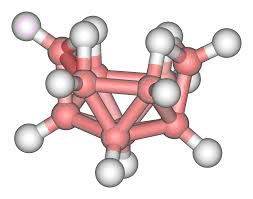Joint Entrance Examination (JEE) is a common entrance exam conducted by Central Board of Secondary Education (CBSE). It is one of the most glorified examinations in our country conducted for admissions to various prestigious engineering colleges in India. Every student tries his/her level best to come up with the best results in this examination. Chemistry is one of the most scoring subjects to enhance one’s rank in JEE. According to the JEE syllabus, chemistry is widely branched into three categories:
- Inorganic chemistry
- Organic chemistry
- Physical chemistry
Of all these categories, inorganic chemistry is the easiest as the questions from this topic are knowledge-based and rarely test the analytical capabilities of the student.
Some FAQs related to inorganic chemistry are mentioned below.
Important Questions For Inorganic Chemistry
1. What are some of the important topics to cover in inorganic chemistry?
According to JEE syllabus, inorganic chemistry includes topics such as s block, p block, d block elements, hydrogen and its properties, coordination compounds, etc. The salt analysis is an important chapter in inorganic chemistry for JEE.
If you go through JEE previous year question papers you will find that almost every year at least one question has been asked from this topic. But looking at the volume of the topic and its weightage in JEE, it should be ultimately left to a candidate’s capabilities to cover such topics as most of the things in the salt analysis are memory based. There are few topics with a focus on trends in the properties of elements where you need to understand the reason for the periodicity in properties.
For example, trends in ionisation potential, atomic radii across the period or down the group. You are supposed to develop a clear understanding of these trends in order to answer questions asked on these topics. A coordination compound is also a very important chapter in inorganic chemistry which cannot be ignored.
2. Which reference books can one follow for inorganic chemistry?
While covering inorganic chemistry for JEE, one must go through the NCERT Books for class 11th and 12th chemistry. A brisk walk through NCERT will not only give you a sound idea of the various topics you need to cover according to the JEE syllabus but also develop the fundamentals regarding the topic. Apart from this, you can follow a reference book to understand some concepts which are explained without much detail in NCERT. J.D. Lee’s book on inorganic chemistry can be used as a reference book. In addition, you can also practice previous year JEE questions.
For further details related to JEE chemistry, get in touch with our mentors here at BYJU’S.
Most Expected Questions from Inorganic Chemistry for JEE Mains & Advanced 2023


Comments